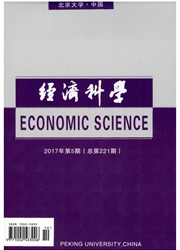

 中文摘要:
中文摘要:
本文从人口规模、人民生活、公共服务和生态环境4个方面构建人口城市化质量测度指标体系,并采用熵值法测度了我国地级以上市的人口城市化质量,结果表明:二、三产业就业人员数是决定人口城镇化质量的最重要因素;我国的人口城市化质量偏低,城市间差距明显;人口城市化质量较高的城市在生态环境和社会保障方面存在不足;我国人口城市化质量在空间上和不同规模城市之间的差异明显。因此,以人为本的新型城镇化建设需要加强顶层设计。
 英文摘要:
英文摘要:
This paper constructs an index system to measure population urbanization from four aspect that the population scales, people's life, public services and ecological environment, and then we use entropy method to calculate the population urbanization quality of cities at prefecture level and above in China. The results show that: the secondary and tertiary industry employment is the most important factor in determining the quality of population urbanization; The population urbanization quality is low in China, and there is obvious gap between cities; Cities with high population urbanization quality have shortcomings in terms of ecological environment and social security; The population urbanization quality has obvious differences in space and between different sizes of cities. People-oriented new urbanization needs to strengthen the top-level design.
 同期刊论文项目
同期刊论文项目
 同项目期刊论文
同项目期刊论文
 期刊信息
期刊信息
